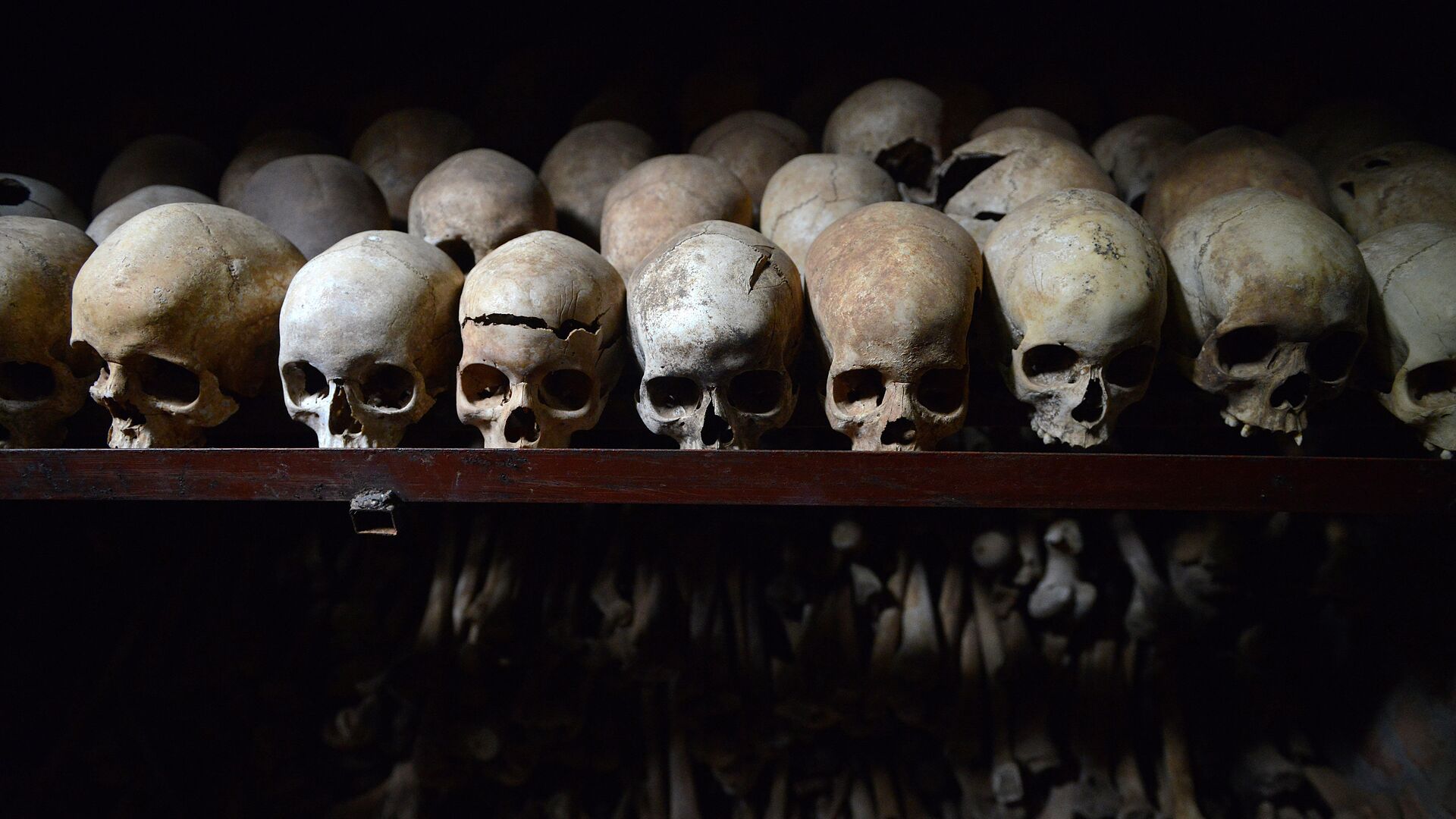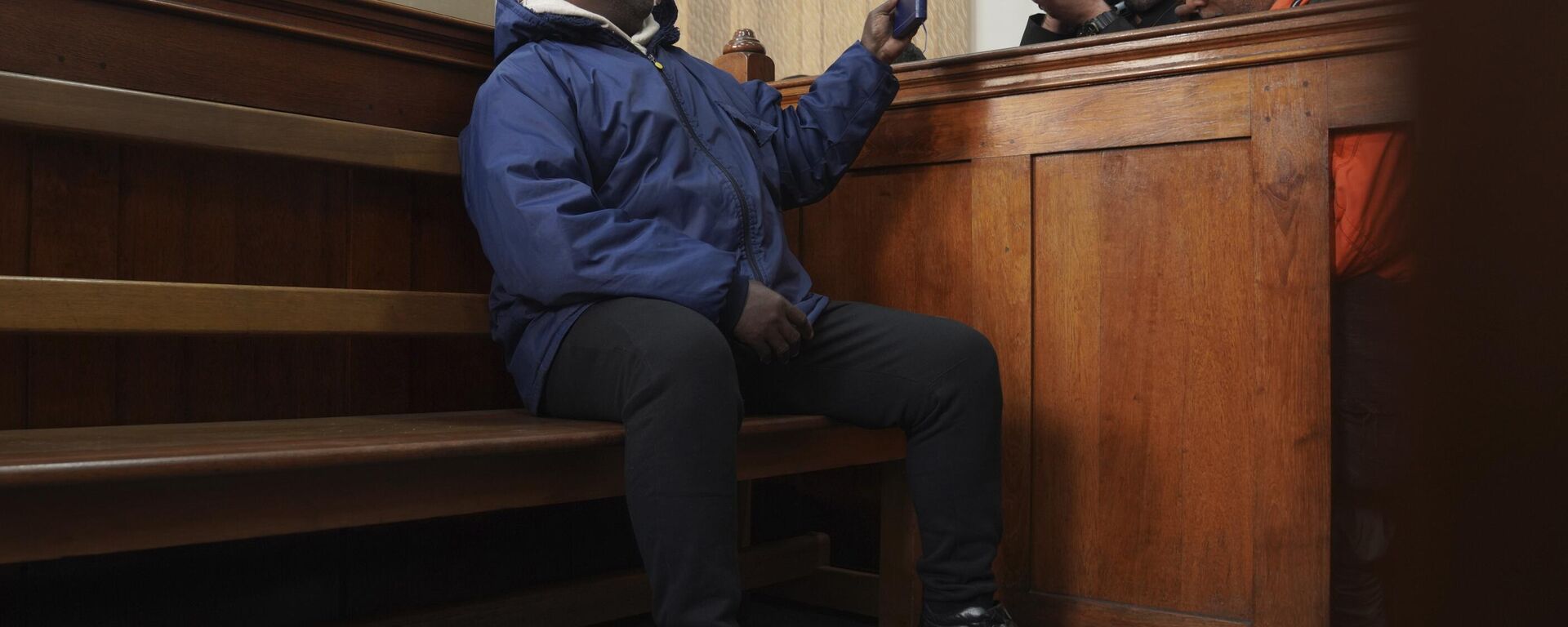https://en.sputniknews.africa/20240126/mass-graves-still-being-discovered-nearly-30-years-after-genocide-rwandan-officials-reportedly-says-1064798464.html
Mass Graves Still Being Discovered Nearly 30 Years After Genocide, Rwandan Officials Reportedly Say
Mass Graves Still Being Discovered Nearly 30 Years After Genocide, Rwandan Officials Reportedly Say
Sputnik Africa
In 1994, the Hutu ethnic group launched a genocide against the smaller Tutsi community and moderate Hutu who refused to participate in the killings. About... 26.01.2024, Sputnik Africa
2024-01-26T15:23+0100
2024-01-26T15:23+0100
2024-02-13T08:20+0100
sub-saharan africa
rwanda
east africa
genocide
united nations (un)
unesco
https://cdn1.img.sputniknews.africa/img/104035/66/1040356611_0:0:7361:4141_1920x0_80_0_0_b88aece28451d4459ad79bd7eba89759.jpg
The remains of 119 people believed to be victims of the 1994 genocide have been discovered in the south of the country, a Rwandan official reportedly said on Thursday. Authorities continue to unearth mass graves nearly three decades after the killings.The bones of more victims are being found because genocide perpetrators tried to hide potentially incriminating material, Naphtal Ahishakiye, executive secretary of the genocide survivors’ organization Ibuka, told Western media.In October, authorities discovered six corpses beneath a house under construction in the south. Further investigation since then has uncovered more bodies there, Ahishakiye reportedly said.The Rwandan genocide of 1994 was the result of a provisional government, composed mainly of Hutus, taking power. It targeted the Tutsi ethnic minority as well as politically moderate Hutus. In about three months, some 800,000 people were killed in clashes between Hutu and Tutsi, according to the UN.Four Rwandan memorials erected in honor of victims of the genocide have also been included on UNESCO's World Heritage list.This year marks the 30th commemoration of the tragic events of 1994.
https://en.sputniknews.africa/20231101/whats-known-about-rwandan-genocide-indicted-fugitive-kayishema-case-1063246939.html
rwanda
east africa
Sputnik Africa
feedback@sputniknews.com
+74956456601
MIA „Rossiya Segodnya“
2024
Christina Glazkova
https://cdn1.img.sputniknews.africa/img/07e7/0b/07/1063380906_0:0:673:674_100x100_80_0_0_79628b4d0cd9f29291a57aa13bbf9e7a.jpg
Christina Glazkova
https://cdn1.img.sputniknews.africa/img/07e7/0b/07/1063380906_0:0:673:674_100x100_80_0_0_79628b4d0cd9f29291a57aa13bbf9e7a.jpg
News
en_EN
Sputnik Africa
feedback@sputniknews.com
+74956456601
MIA „Rossiya Segodnya“
Sputnik Africa
feedback@sputniknews.com
+74956456601
MIA „Rossiya Segodnya“
Christina Glazkova
https://cdn1.img.sputniknews.africa/img/07e7/0b/07/1063380906_0:0:673:674_100x100_80_0_0_79628b4d0cd9f29291a57aa13bbf9e7a.jpg
rwanda, east africa, genocide, united nations (un), unesco
rwanda, east africa, genocide, united nations (un), unesco
Mass Graves Still Being Discovered Nearly 30 Years After Genocide, Rwandan Officials Reportedly Say
15:23 26.01.2024 (Updated: 08:20 13.02.2024) Christina Glazkova
Writer / Editor
In 1994, the Hutu ethnic group launched a genocide against the smaller Tutsi community and moderate Hutu who refused to participate in the killings. About 800,000 people were slaughtered between April and June 1994, the majority of whom were Tutsis, along with Twa and other ethnic groups.
The remains of 119 people believed to be victims of the 1994 genocide have been discovered in the south of the country, a
Rwandan official reportedly said on Thursday. Authorities continue to unearth mass graves nearly three decades after the killings.
The bones of more victims are being found because genocide perpetrators tried to hide potentially incriminating material, Naphtal Ahishakiye, executive secretary of the genocide survivors’ organization Ibuka, told Western media.
In October, authorities discovered six corpses beneath a house under construction in the south. Further investigation since then has uncovered more bodies there, Ahishakiye reportedly said.
The Rwandan genocide of 1994 was the result of a provisional government, composed mainly of Hutus, taking power. It targeted the Tutsi ethnic minority as well as politically moderate Hutus. In about three months, some 800,000 people were killed in clashes between Hutu and Tutsi, according to the UN.
Four Rwandan memorials erected in honor of victims of the genocide have also been included on
UNESCO's World Heritage list.
This year marks the 30th commemoration of the tragic events of 1994.



